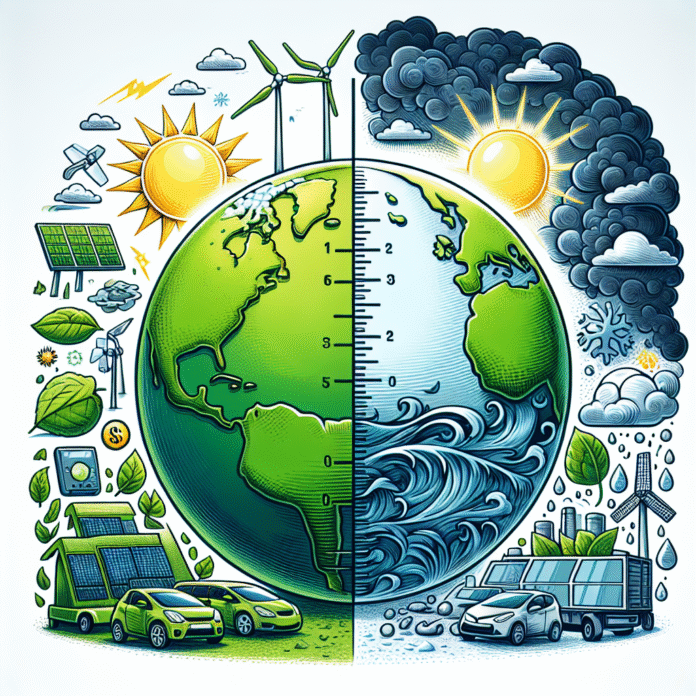US House Proposes Significant Changes to Climate and Clean Energy in Budget Plan
US House Proposes Major Rollbacks on Climate and Clean Energy Initiatives in Budget Plan
In a significant shift in policy direction, the U.S. House of Representatives has unveiled a budget proposal that aims to roll back substantial climate and clean energy initiatives established in recent years. This plan has sparked intense debate among lawmakers and environmental advocates, highlighting the growing divide over climate policies in the U.S.
Details of the Proposal
The budget proposal, spearheaded by House Republicans, seeks to dismantle various components of the Biden administration’s ambitious climate agenda. Key provisions include cuts to funding for renewable energy projects, reductions in subsidies for electric vehicles, and the elimination of incentives for energy-efficient home upgrades. Proponents of the rollback argue that these measures are necessary to reduce government spending and stimulate economic growth, contending that the free market should dictate the energy landscape without heavy governmental interference.
Environmental Concerns and Pushback
Environmentalists and climate scientists have expressed grave concerns about the implications of these proposed rollbacks. They warn that reducing investments in clean energy could hinder progress towards achieving net-zero emissions, a target that many experts believe is crucial to mitigating the impacts of climate change. Critics argue that the proposed cuts will exacerbate environmental degradation and ultimately increase reliance on fossil fuels, counteracting the momentum gained in recent years toward sustainable energy sources.
Furthermore, many advocates contend that the proposed budget undermines long-term economic opportunities tied to clean energy jobs. As the global economy increasingly shifts towards renewable energy, they emphasize that fostering clean energy industries could yield substantial job growth and technological advancements.
Political Ramifications
The budget proposal is likely to face significant opposition in the Senate, where Democrats maintain a slim majority. Some moderate lawmakers from both parties have already voiced their concerns about the potential environmental consequences of the proposed rollbacks. This division may lead to a contentious debate as both sides attempt to negotiate a budget that balances fiscal responsibility with environmental sustainability.
Additionally, public opinion on climate change remains a pivotal factor in the political landscape. Recent polls indicate that a substantial majority of Americans support investing in clean energy and taking action against climate change. This public sentiment may influence lawmakers as they navigate the complex dynamics of the budget proposal.
Conclusion
As the U.S. House moves forward with its budget proposal targeting climate and clean energy initiatives, the outcome remains uncertain. The implications of this shift could have lasting effects on both environmental policy and the economy. Stakeholders from all sides will likely continue to advocate for their positions as the discussion unfolds, underscoring the critical importance of balancing budgetary concerns with the urgent need to address climate change. The path ahead will be closely watched as the nation grapples with these pivotal issues.
